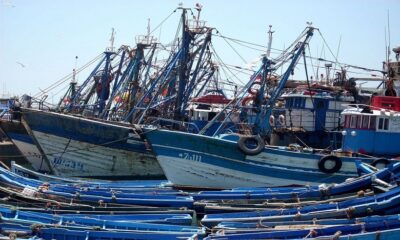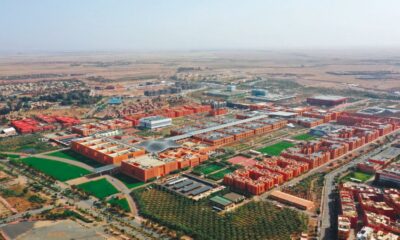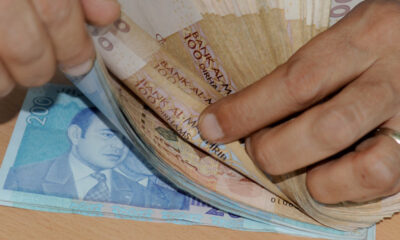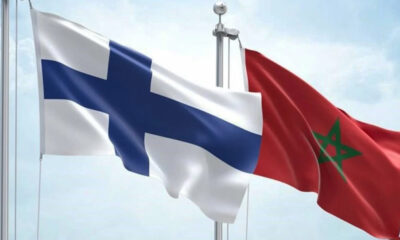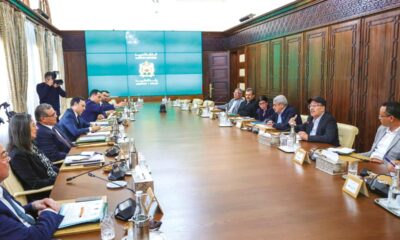Kingdom
Sahara: The Next Three Months Will Be Decisive
All indications suggest that the conflict surrounding the Moroccan Sahara will be resolved before the 50th anniversary of the Green March. The United States, France, and other influential international actors are actively working to achieve this outcome.
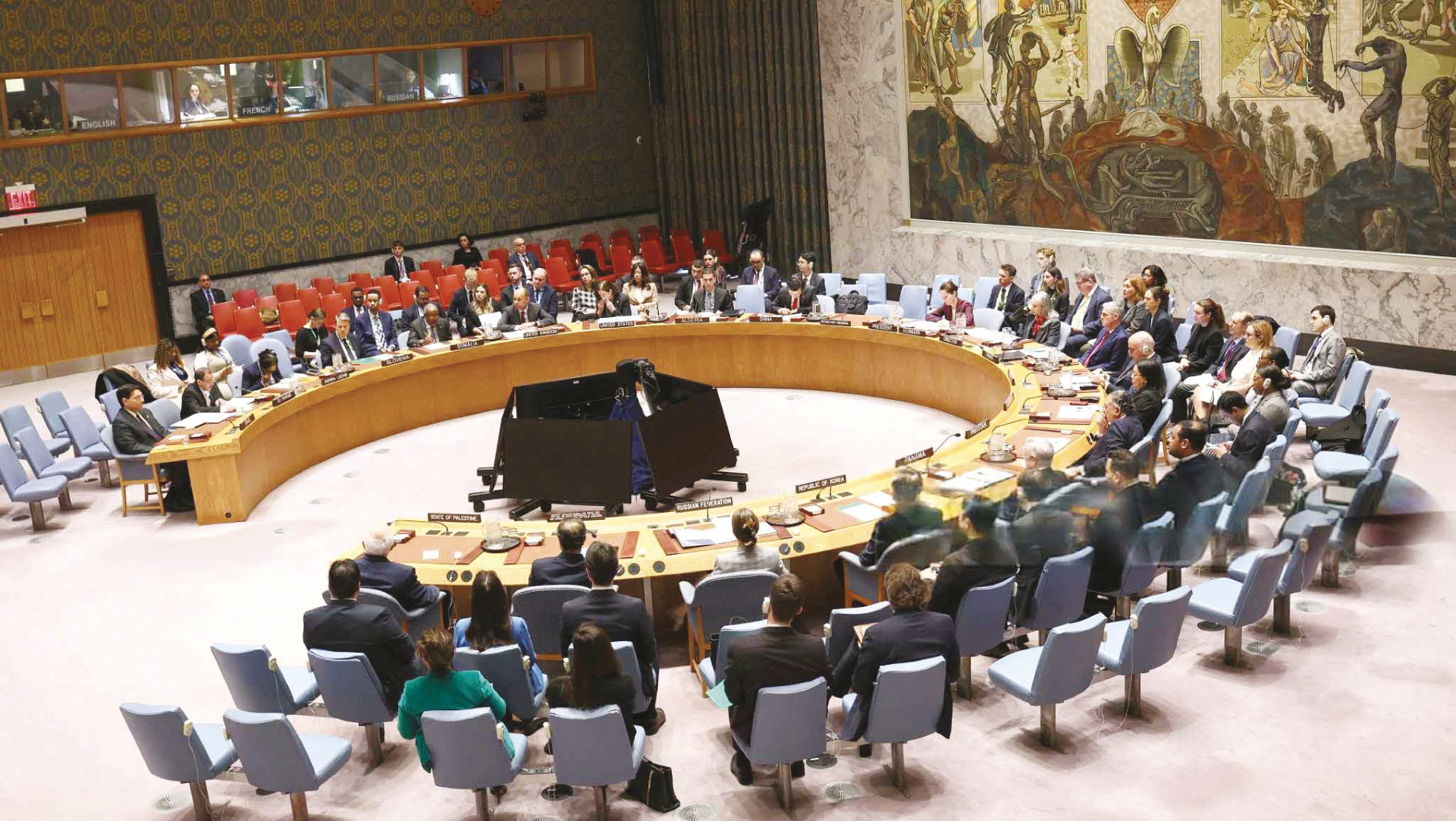
There are signs that do not lie. And there have been many over the past two weeks indicating that the conflict over the Moroccan Sahara is entering its final months, if not days. On Monday, April 14, the UN Security Council held its periodic meeting on the Moroccan Sahara issue. This was a closed-door session of the UN Security Council dedicated to MINURSO.
What should be noted about this meeting is, first, its relative lack of significance. In other words, it is not important in itself, but rather the “side events” associated with it. Specifically, it was a routine consultation where the Personal Envoy of the Secretary-General, Staffan de Mistura, and his Special Representative for the Sahara, head of MINURSO, the Russian Alexander Ivanko, presented oral reports on recent developments regarding the Sahara issue. Overall, nothing extraordinary occurred.
What stands out from this meeting, however, is Staffan de Mistura’s call to the Security Council’s fifteen members to leverage the “new diplomatic momentum” surrounding the Sahara issue—over 110 countries clearly support Morocco’s autonomy plan—and the “recent developments” that “could have significant implications for de-escalating tensions in the region and facilitating a mutually acceptable resolution for the Sahara.”
For his part, Special Representative Alexander Ivanko told Council members that “the Polisario Front does not appear capable of inflicting significant damage on the Royal Armed Forces (FAR) or altering the status quo through military means.” Conversely, “the FAR, equipped with considerable military capabilities, have shown restraint thus far.” During his briefing, the head of MINURSO also commended “the cooperation” of the FAR with the UN mission.
In short, according to de Mistura’s envoy, the next three months will undoubtedly be decisive. Moroccan diplomacy is actively committed to resolving this issue before the 50th anniversary of the Green March on November 6.
As clarified by the UN Secretary-General’s Personal Envoy, the most critical aspect of this meeting is the context in which it took place, including Donald Trump’s return to the White House, France’s recognition of the Moroccan identity of the Sahara, and the “discussions” initiated between Morocco and the United Kingdom on the matter.
Additionally, just prior to the meeting, Morocco’s Foreign Minister embarked on a tour of three strategically significant capitals for the issue: Washington, Paris, and, to some extent, Muscat.
Polisario: A Terrorist Organization
In the United States, the statement issued after Nasser Bourita’s meeting with Marco Rubio—the latter’s first with a foreign minister from the Arab, North African, or African region—reiterated the Trump Administration’s confirmation of the Moroccan identity of the Sahara.
The Minister held multiple discussions, including with members of Congress and Mike Waltz, National Security Advisor to President Trump, among other U.S. officials. He met with several influential members of Congress and chairs of strategic committees, such as Senator Lindsey Graham, Representatives Brian Mast, Joe Wilson, and Mario Diaz Balart, as well as members of the Abraham Accords Caucus from both Houses of Congress.
Notably, following a meeting between Lisa Kenna, U.S. State Department Executive Secretary, and Staffan de Mistura, influential Congressman Joe Wilson announced his intention to “introduce a bill in the U.S. Congress to designate the Polisario as a terrorist organization.”
The announcement made waves, though its implementation remains pending. Meanwhile, a State Department communiqué released after the Bourita-Rubio meeting reaffirmed Donald Trump’s support for Moroccan sovereignty over the Sahara while emphasizing “genuine autonomy” and a “mutually acceptable solution” that the U.S. is prepared to “actively facilitate.”
The language used confirms American intent on the matter. “We are in a dynamic that the United States will reinforce to end a bilateral—yet regionally significant—conflict that has lasted half a century,” commented Morocco’s Permanent Representative to the UN, Ambassador Omar Hilal.
France, another permanent Security Council member where Nasser Bourita visited on Monday, reiterated the “steadfast” position expressed by its President. “For France, the present and future of Western Sahara lie within the framework of Moroccan sovereignty,” stressed a statement from the French Foreign Ministry.
The French Minister reaffirmed his country’s support for the UN Secretary-General and his Personal Envoy’s efforts and “encouraged all parties to convene toward a political settlement, which is within reach.” Observers agree that the alignment of these two nations in recognizing the Moroccan identity of the Sahara signals a decisive push to advance the political process and resolve the dispute.
Moreover, Jason F. Isaacson, a leader of the American Jewish Committee (AJC), recently reinforced this sentiment, stating that the Trump Administration aims to resolve the Sahara issue in Morocco’s favor ahead of the 250th anniversary of U.S.-Morocco relations.
This signals that the end is near—very near. “We hope the 50th anniversary of the Green March will mark the happy occasion, and the auspicious year, when this issue is definitively resolved with our Algerian neighbors,” declared Morocco’s Ambassador to the UN.
Iran and the Polisario
In recent revelations, the influential Washington Post reported that “over the years, Iran has strengthened a vast network of affiliated groups to serve its interests. For instance, it has trained Polisario Front fighters based in Algeria.” These are facts Morocco exposed long ago, with evidence to substantiate.
It is also widely known that Polisario militants are held captive in Syria, following the fall of the Assad regime. However, timing is critical. Many speculate that Nasser Bourita’s recent visit to Oman was far from coincidental. In any case, the correlation is striking.
During this visit, Oman expressed, following the 7th Joint Commission between the two countries, “its support for the territorial integrity and sovereignty of the Kingdom of Morocco over its entire national territory.” This stance is not new, but Oman’s unique geopolitical position lends it considerable weight.
Notably, Oman is the indispensable intermediary in all dealings with Iran. It plays a key role in negotiations with Tehran, including current talks between Iran and the United States.

